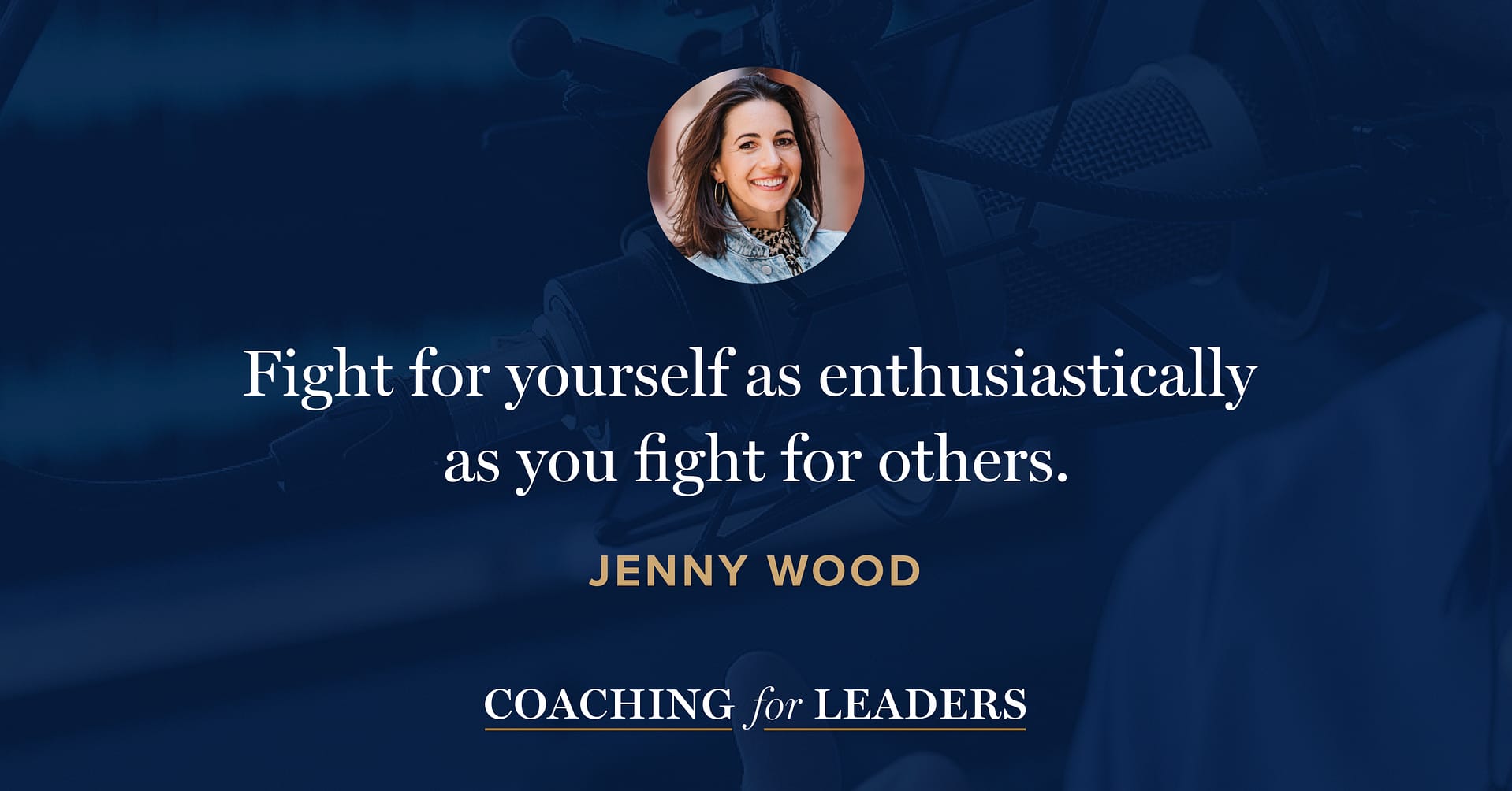Jenny Wood: Wild Courage
Over an 18-year career at Google, Jenny Wood grew from entry-level to executive, most recently leading a large operations team that helped drive billions of revenue per year. In 2021, she started a passion project within Google called Own Your Career, which grew to one of the largest career development programs in Google’s history. Her work has since been featured in Harvard Business Review, Entrepreneur, and Forbes, and she’s now the author of Wild Courage: Go After What You Want and Get It*.
Leadership is about serving others – and it’s also ensuring that we take care of ourselves along the way. Sometimes leaders over-index on helping their organizations and teams, to their own detriment. In this conversation, Jenny and I explore where being a little more selfish might actually be better for everyone.
Key Points
- Selfish redefined means having the courage to stand up for what you want.
- People want to join a winning team, even if they don’t say that out loud.
- Guilt is natural, but always caving to it is self-defeating.
- Don’t do work that’s not actually promotable. There’s no prize for an empty inbox.
- A belief like “I owe it to them,” may signal an over-commitment to the organization. They will not love you back.
- Appreciate truth when you get it, but don’t sign up for a burned-out boss.
- It’s inefficient to always be in the lead. Draft in another leader’s wake.
Resources Mentioned
- Wild Courage: Go After What You Want and Get It* by Jenny Wood
Interview Notes
Download my interview notes in PDF format (free membership required).
Related Episodes
- Align Your Calendar to What Matters, with Nir Eyal (episode 431)
- The Ways Leadership Can Derail Us, with Bill George (episode 596)
- The Path to More Joy in Work and Life, with Judith Joseph (episode 734)
Discover More
Activate your free membership for full access to the entire library of interviews since 2011, searchable by topic. To accelerate your learning, uncover more inside Coaching for Leaders Plus.





